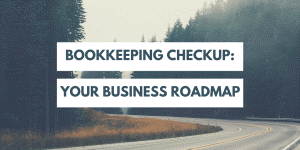By: Liz LaJoie of Statera Business Solutions
I can’t afford to hire someone yet!
Is your consulting or coaching business starting to take off and you’re finding yourself mired in a financial management morass? Are you feeling overwhelmed by your bookkeeping, trying to stay on top of your bills and tracking down payments from your clients? I know how hard it can be to manage your finances while you’re working to grow your business. You’re not alone if you’re up late at night, trying to get a handle on your money situation and worrying whether you’re making the right choices for your business. You may be wondering if you’re missing critical pieces of the financial puzzle or how exactly to file your quarterly taxes. It probably seems like it’ll be ages before you’re ready to hire some help. Or maybe your plan will never include that person. That doesn’t mean you should ignore your books.
What time is the right time?
One of the biggest mistakes new business owners make is to downplay the importance of getting their books set up correctly right out of the gate. It can be easy to assume that you’ll ‘get to it someday’, presumably when it becomes important. This may seem to work in the short run, when you only have a handful of clients and maybe you’re spending more than you’re bringing in. The checkbook method can give you a general idea of where you stand, but in the long run you’re doing your business (and yourself) a disservice.
I’m guessing you went into business to make some money. Now, don’t get me wrong…I’m a huge fan of doing something you’re passionate about. It’s what makes you great at interacting with your clients and sharing your expertise with the world. But if you’ve hung your shingle and are accepting payment for your services, changes are good you’re interested in building a successful business, too. And if that’s the case, getting really comfortable with how your finances work is a critical step in your business journey.
It’s never too early to set your finances up properly and to learn how to manage your books.
Now, I know it may seem like an unnecessary expense to hire someone to help with your accounting when you can’t even afford to pay yourself. But there are a few things you should consider investing in now to set yourself up really well for the future.
-
Pick Accounting Software
There are a lot of ways to track your income and expenses these days. Everything from industry-specific project management/accounting software (most often used by licensed professionals like engineers and medical providers) to out-of-the box accounting programs (like Quicken and QuickBooks) to online programs that track your expenses and generate invoices for you (Freshbooks, 17 Hats, and many, many others). And then there are the do-it-yourself-ers who enjoy building spreadsheets or tracking in a spiral notebook. All of these options have value. So how do you, as the small business owner, choose one?
I’m a big fan of choosing a true accounting software program like QuickBooks Online or Xero over something that may help you manage your payments and track your expenses, but which won’t give you true financial reporting or back-end management capabilities, like journal entries. Why is this important, you ask? Because I am a huge believer in streamlining your processes. If any kind of growth or deeper financial analysis is in your future, then why not start with the program you intend to end up using? Both of these programs are accessible from anywhere and automatic updates are included in the subscription. Whatever system you choose, take advantage of free training and help centers to get up to speed with the program.
I’ve talked with lots of people who have started tracking their financial data in a spreadsheet or with an online CMR program, only to find themselves needing to make the switch to a more robust system as they begin to understand how important the financial management aspect of their business is. Then it takes time to shift gears, repopulate the new system, and learn the new programs. Why not start off on the right foot?
-
Learn the Basics
Small business finance isn’t quite as simple as managing a personal checkbook. But it’s not much harder, either, and you can learn all you need to know in fairly short order. What’s your learning style? Do you go for self-help books or do you prefer working with someone face to face? There are myriad options out there to teach you the language, basic rules, and best practices to managing your books. The important thing is to do it! Check out a few books from the library, talk to friends who own successful businesses, Google your questions, or talk to a bookkeeper about what you should be doing. You may not be ready to hire someone to take care of your books for you, but you can get advice and start learning right now.
There are certain activities and tasks that need to be done at certain times (taxes being a prime example) that you want to make sure you’re on top of. Getting familiar with financial definitions and the financial process will help you feel much more confident with your finances. I talk to a lot of women who feel uncomfortable with their business finances and are wondering if they’re missing anything. I can tell you the easiest way to alleviate that not-so-good feeling is by educating yourself about business finances. You’ll feel a lot better once you have a solid understanding of business finance ABCs and you’ll have a better understanding of what your accountant is talking about when you bring in your receipts for year-end tax prep!
-
Ask for Help
One of the hardest things about starting a new business is that you don’t know what you don’t know. Working with an experienced financial manager, bookkeeper or accountant can really help you up your game. There are lots of options out there, some for free, to get you the training and feedback you need to really get things rolling with your business. Check out your local SCORE chapter, join a small business group on Facebook or Linked In, or talk to a friend experienced in business and start asking questions. You might feel you’ve fallen down a rabbit hole when you start learning the language of finance and start getting a handle on how to best manage your money. Don’t panic! Just like learning how best to attract your ideal client takes time, so does getting comfortable with your finances.
Working with someone to set up and learn about your finances is important for your business. While it may seem like an unnecessary step, making sure you’re on the right track early on can alleviate future headaches, unexpected penalties, and help you fully understand your financial options when growing your business. It may not be a full-time, forever relationship, but getting some help now can really set your business apart. And ultimately put more money in your pocket, when you understand exactly what you’re making, where you’re spending it, and how best to manage your cash.
The Time Is Right
With tax and financial changes around the corner, there’s no better time to do this work. Taking a look at where you stand, what systems you have in place, and where you want to go in the new year are a great way to get started. Make increasing your financial know-how a priority and get your business set up with a great financial system that can grow with you. It can be hard to take on something that may seem boring – like finance – but it is the best way I know to understand what truly drives your business and to feel truly confident in your strategic decisions.
Take a look at your accounting / financial tracking programs and determine if you need an upgrade. Educate yourself about the basics of business finance. You don’t need to become an expert, but you need to understand how everything works together in your accounting system. Find a mentor or teacher to help guide you along your financial education journey, so you have someone to bounce ideas off of and ask questions. Join a group of like-minded entrepreneurs and start learning. It can be daunting to start looking at and talking about your finances, but hiding from your numbers and hoping for the best isn’t a great strategy. It’s far more rewarding to face your finances and make them work for you!
Wondering Where You Stand?
If you’re wondering how to get started and are worried about where your finances are right now, a free Bookkeeping Checkup is a great option! Learn what’s working well and identify areas for improvement in your business. Find out how you can streamline your accounting activities and free up your time. Start 2017 off right by learning exactly where you stand, identifying areas for improvement and building a road map for your finances that will streamline your business and give you more time to focus on doing what you love! Click here to learn more!!
Wondering What to Do And When?
Wish you knew exactly what you should be doing with your books on a daily, weekly, monthly and yearly basis? Grab this handy Bookkeeping Checklist to stay on track with your accounting tasks!
Liz LaJoie is a financial management consultant and owner of Statera Business Solutions. She helps women in consulting, professional services and coaching, take care of their books and make smart financial decisions. Her clients are passionate about what they do but feel overwhelmed by the financial management that is essential for a successful business. With their books in order and an understanding of how to manage their finances, they can focus on doing what they love!

